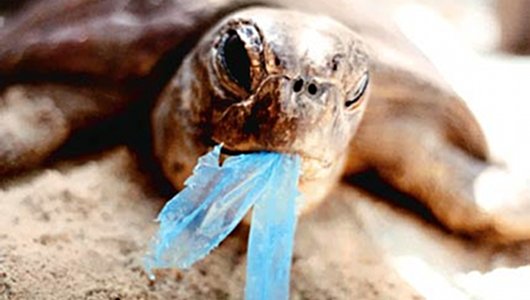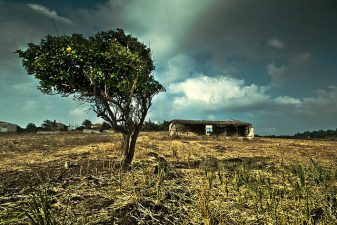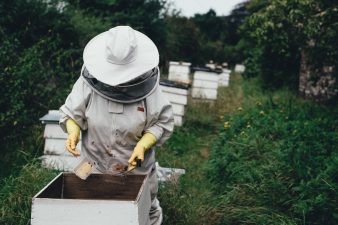A marine turtle in Florida passed 74 foreign objects over a period of one month. Conference in Honolulu tries to get a grip on plastic pollution.
Let’s not mince our words: plastic pollution sucks. The source of David de Rothschild’s inspiration to sail the Pacific on a lumbering catamaran made from 12, 500 plastic bottles, plastic exacts a terrible toll on about 100,000 marine creatures every year. And if you’re still not convinced, this latest story from Mother Nature Network is certain to make you look at your plastic bottle twice. One turtle in Florida was discovered with so much marine debris in its system that it pooped plastic for a month. This news comes from a report issued by Seaturtle.org at the Fifth International Marine Debris Conference in Honololulu, Hawaii.
Discovered by marine biologists on Melbourne Beach in Florida, the turtle was struggling to digest its food. The researchers then pulled out a huge piece of plastic from its intestinal tract. But it didn’t stop there. For another month, the turtle continued to defecate marine pollution.
Here are a few of among 74 foreign objects that emerged from the turtle’s belly:
- four types of latex balloons
- five different types of string
- nine different types of soft plastic
- four different types of hard plastic
- a piece of carpet-like material
- and two large tar balls
Half of the turtles surveyed have ingested marine pollution often because they mistake translucent materials like plastic for jelly fish and sea sponges – their usual source of nutrition.
MNN reports:
According to the report, well over a billion single-use plastic bags are given out for free every day. Though the report estimates that only about 0.2-0.3 percent of plastic production eventually ends up in the ocean, it accumulates at an alarming rate. In the 1960s, less than one percent of our waste was plastic, but today it makes up to 80 percent of all waste that accumulates on land, shorelines, the ocean surface, or seabed.
The conference in Honolulu, taking place from March 20-25th, is designed to present new research about and generate better awareness of plastic pollution. More importantly, it creates an opportunity to brainstorm solutions.
Want to help? Start buying bulk (thereby reducing the amount of packaging you use), stop using plastic bags, buy a durable, reusable water bottle, and donate to your local conservation office.
:: MNN
More on plastic pollution:
It’s The Beginning Of The End For Plastic Bags In Abu Dhabi
UAE To Be Plastic-Free By 2013
Plastic Waste Kills 100,000 Marine Creatures Each Year



